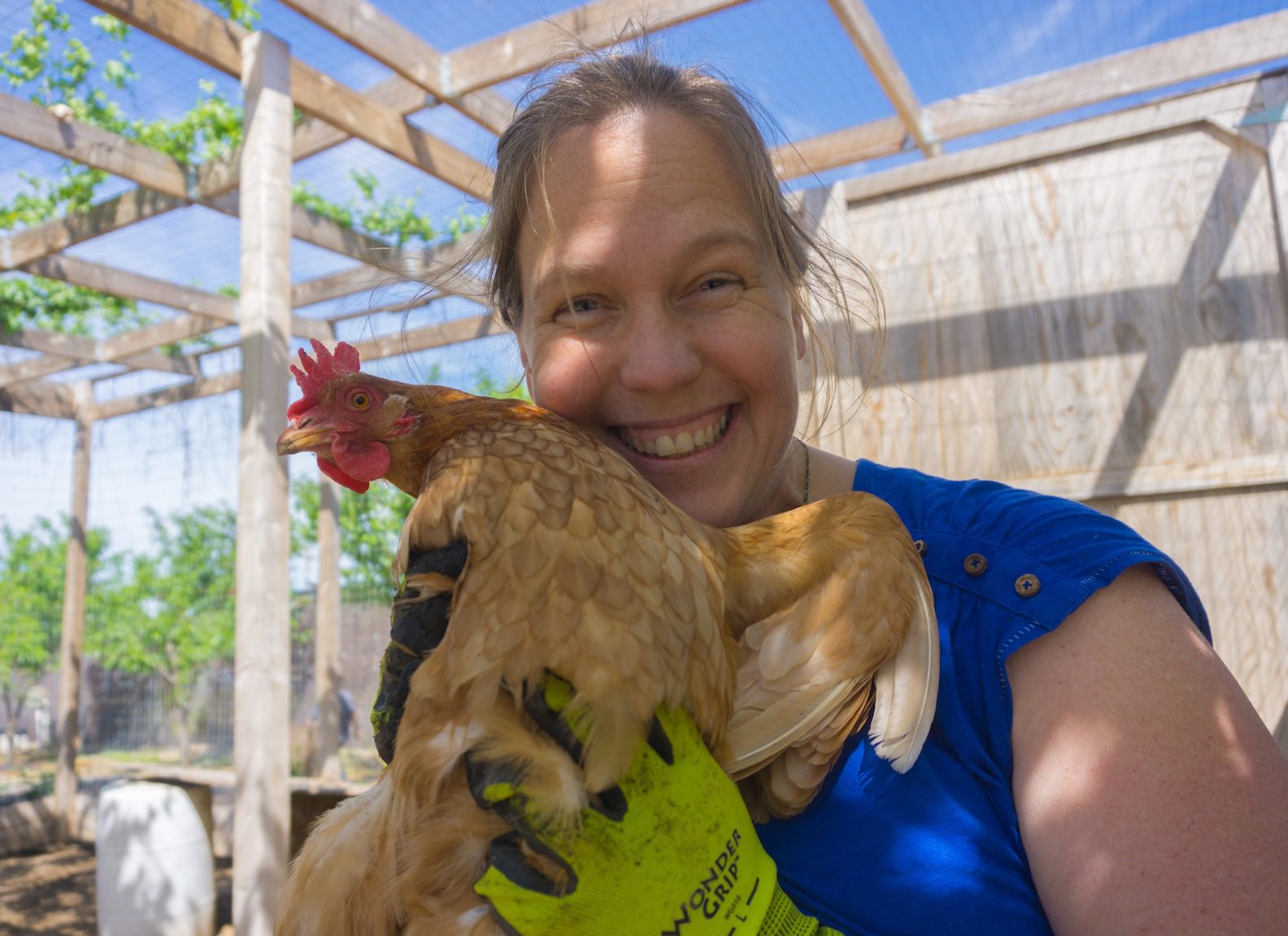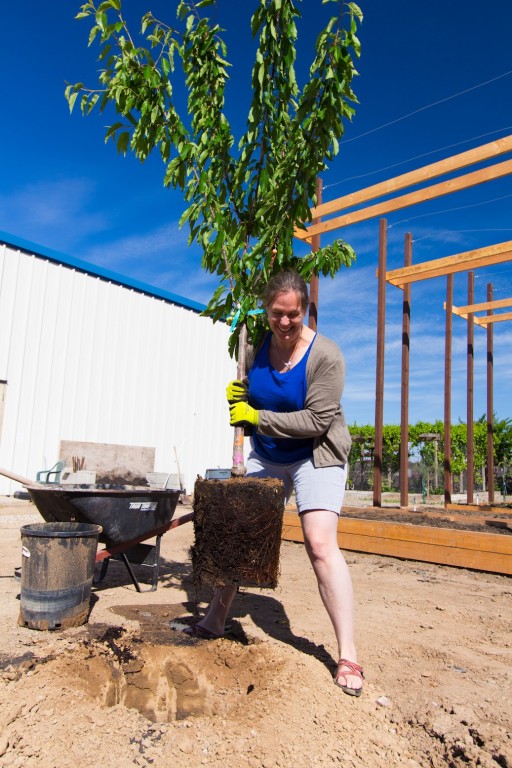Monday April 6, 2015
FISHBIO is excited to announce the newest addition to our staff: Dr. Christine Verhille is an expert in conservation physiology who comes to us from the University of California, Davis. There, she worked as a post-doctoral scholar studying native California fishes and their interactions with the environment. With the construction of FISHBIO’s new wet lab, Christine will continue work on fish survival and swimming performance in relation to factors like temperature and flow, as well as in relation to surgically implanted acoustic and PIT tags. She will also work with other FISHBIO biologists to write scientific manuscripts for publication. Her first day with us got her started the FISHBIO way – by meeting our chickens and helping to plant our spring garden.If physiology sounds like the work of a doctor, that’s because it is. Physiology is the study of how the organs and systems of the body work together to keep animals or people healthy. Just as pollution or poor nutrition affect the physiology of people and make us unhealthy, environmental changes such as high or low temperatures, pollutants, or changes to the food supply can affect the physiology of fish. As a fish conservation physiologist, Christine studies how a fish’s body works when it is challenged with a poor environment, kind of like a fish doctor.Conservation physiology is a powerful tool to help answer questions about how the environment affects fish. This is because studying the physiology of individual fish helps us learn about the actual causes that drive the response of whole fish populations to changes in the environment. By studying factors like fish swimming performance, heart rate, oxygen consumption, and survival under a variety of conditions, we can pinpoint the exact environmental variables that affect fish individuals and populations, such as temperature or flow. This efficient approach is very valuable for managing fish in California waterways, especially in times of limited water supply.Christine is interested in using physiological studies to help understand why fish populations succeed or fail in changing ecosystems. This began with her Ph.D. studies at the University of British Columbia in Canada, where she studied the physiology of rainbow trout populations stocked in lakes for sport fishing, and identified the mechanisms driving poor survival of some rainbow trout populations (Verhille and Farrell 2012; Verhille et al. 2013). She also studied the effects of increased temperature on the physiology of sockeye salmon (Steinhausen et al. 2008). Since moving to California and working at UC Davis, Christine has studied the physiology of green and white sturgeon (Verhille et al. 2014), Sacramento splittail, Delta smelt, and steelhead trout. Based on her efforts helping with the spring planting at FISHBIO Farms, we’re excited to see the fruits of her work with us.
This post featured in our weekly e-newsletter, the Fish Report. You can subscribe to the Fish Report here.


